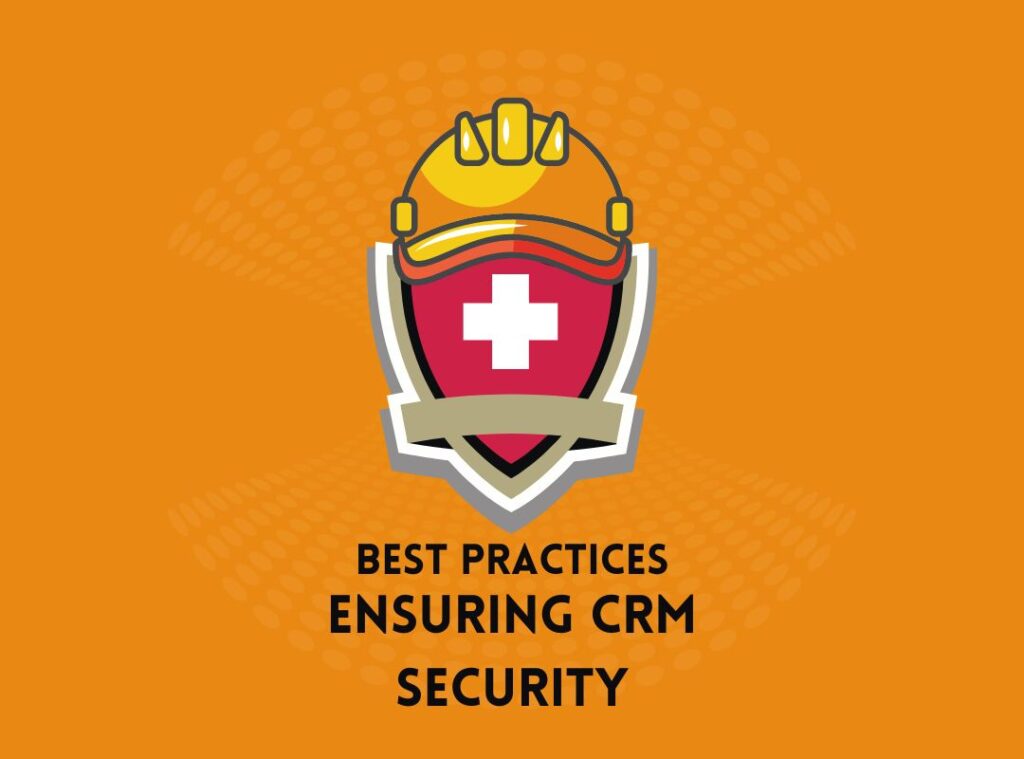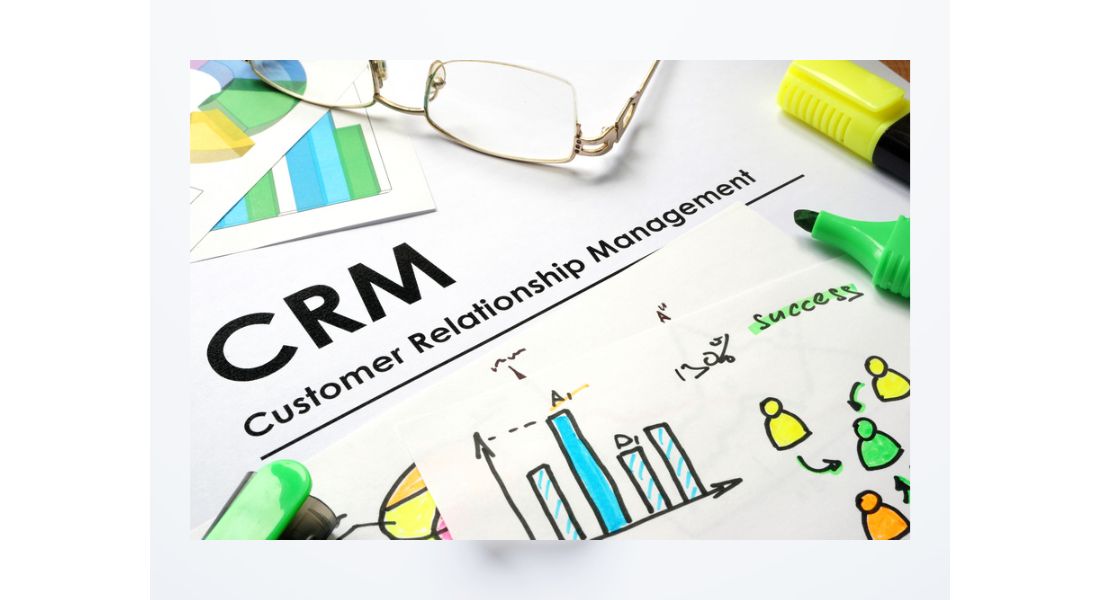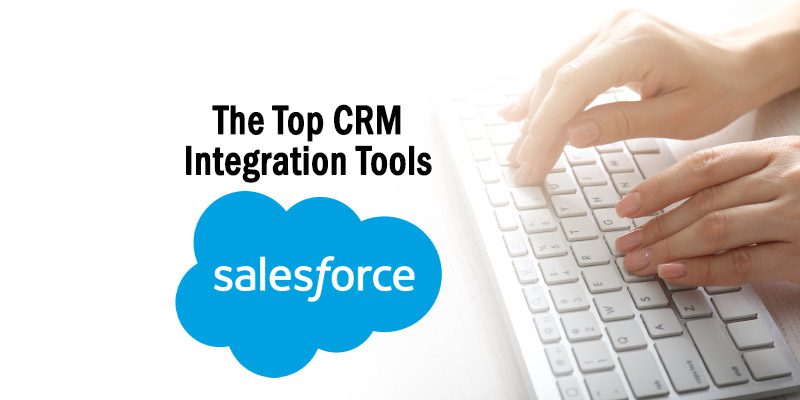Fortifying Your Small Business: A Deep Dive into CRM Security

Introduction: The Security Imperative for Small Businesses
In the dynamic landscape of modern business, small businesses are the lifeblood of the economy. They’re innovative, agile, and often the first to adopt new technologies. However, this very dynamism can also make them vulnerable. One of the most critical technologies adopted by small businesses is Customer Relationship Management (CRM) software. While CRM systems offer unparalleled benefits in terms of customer management, sales automation, and marketing efficiency, they also introduce new security challenges. This comprehensive guide delves deep into the world of CRM security, specifically tailored for small businesses, exploring the threats, solutions, and best practices to fortify your customer data and business operations.
The digital realm is rife with threats. Cyberattacks are becoming more sophisticated, and small businesses are increasingly becoming targets. Why? Because they often lack the robust security infrastructure of larger corporations, making them easier prey. Losing customer data can be catastrophic, leading to financial losses, reputational damage, and legal ramifications. Therefore, understanding and implementing robust CRM security measures is no longer optional; it’s a fundamental requirement for survival and success.
Understanding CRM Security Risks: A Threat Landscape
Before diving into solutions, it’s crucial to understand the risks. The threat landscape for CRM systems is multifaceted, encompassing various vulnerabilities and attack vectors. Here’s a breakdown of the most common threats:
Data Breaches
Data breaches are perhaps the most feared consequence of inadequate CRM security. These breaches can expose sensitive customer information, including names, contact details, financial records, and even personal identification numbers (PINs). Data breaches often result from:
- Weak Passwords: Easily guessable or default passwords make it simple for attackers to gain access.
- Phishing Attacks: Deceptive emails designed to trick employees into revealing login credentials or installing malware.
- Malware Infections: Malicious software that can steal data or compromise the CRM system.
- Insider Threats: Disgruntled employees or those with malicious intent can intentionally or unintentionally leak data.
- Unsecured Third-Party Integrations: Integrating with other systems can introduce vulnerabilities if those systems are not properly secured.
Ransomware Attacks
Ransomware is a type of malware that encrypts a business’s data and demands a ransom payment for its release. CRM systems, containing valuable customer data, are attractive targets. Successful ransomware attacks can cripple a business, leading to significant downtime, financial losses, and reputational damage. Prevention is key, and involves regular backups, employee training, and robust security software.
Denial-of-Service (DoS) Attacks
DoS attacks aim to make a system or network unavailable to its intended users. In the context of CRM, a DoS attack could prevent employees from accessing customer data, processing orders, or providing customer support, effectively disrupting business operations. These attacks can be launched from a single source or, more commonly, from a distributed network of compromised computers (DDoS attacks).
Account Takeover
Account takeover occurs when an attacker gains unauthorized access to a user’s CRM account. This can be achieved through various methods, including password cracking, phishing, or social engineering. Once an attacker has control of an account, they can access sensitive data, modify records, or even impersonate the user to carry out malicious activities.
Vulnerability Exploitation
CRM software, like all software, can contain vulnerabilities. These are weaknesses in the code that attackers can exploit to gain unauthorized access or compromise the system. Keeping the CRM software updated with the latest security patches is crucial to mitigate this risk.
Choosing a Secure CRM System: Key Considerations
The foundation of your CRM security strategy lies in the system you choose. Not all CRM providers offer the same level of security. When evaluating CRM options, consider the following:
Security Features
Look for a CRM system that offers a comprehensive suite of security features, including:
- Data Encryption: Encryption protects data at rest and in transit, making it unreadable to unauthorized parties.
- Multi-Factor Authentication (MFA): MFA adds an extra layer of security by requiring users to verify their identity using multiple factors, such as a password and a code from their phone.
- Access Controls and Permissions: Granular control over user access allows you to restrict access to sensitive data based on roles and responsibilities.
- Regular Security Audits: The CRM provider should conduct regular security audits to identify and address vulnerabilities.
- Activity Logging and Monitoring: Detailed logs of user activity allow you to track suspicious behavior and quickly identify potential security breaches.
- Compliance Certifications: Look for certifications like SOC 2 or ISO 27001, which indicate that the provider adheres to industry-standard security practices.
Vendor Reputation
Research the CRM vendor’s reputation. Read reviews, check their security track record, and see if they have experienced any past security breaches. A vendor with a strong security focus and a proven track record is more likely to provide a secure CRM solution.
Data Storage Location
Consider where the CRM provider stores your data. If you are subject to specific data privacy regulations, such as GDPR or CCPA, you’ll need to ensure that the provider’s data storage practices comply with those regulations. Data storage location might also influence latency and performance.
Scalability and Support
Choose a CRM system that can scale with your business and offers robust support. As your business grows, your CRM system will need to accommodate more users and data. Reliable support from the vendor is essential for addressing security concerns and resolving technical issues.
Implementing CRM Security Best Practices: A Proactive Approach
Choosing a secure CRM system is just the first step. Implementing security best practices is crucial to maintain a strong security posture. Here are some key practices to follow:
Strong Password Policies
Enforce strong password policies to protect user accounts. Require users to:
- Use strong, unique passwords that are at least 12 characters long.
- Avoid using easily guessable passwords, such as personal information or common words.
- Change passwords regularly (e.g., every 90 days).
- Prohibit password reuse across different accounts.
Multi-Factor Authentication (MFA)
Enable MFA for all CRM user accounts. MFA significantly reduces the risk of account takeover by requiring users to verify their identity using a second factor, such as a code from their phone or a biometric scan. This is a critical layer of defense against compromised credentials.
Access Control and Permissions
Implement strict access controls and permissions. Only grant users the minimum level of access necessary to perform their job duties. Regularly review and update user permissions to ensure they remain appropriate.
Employee Training and Awareness
Educate your employees about CRM security risks and best practices. Conduct regular training sessions on topics such as:
- Phishing awareness
- Password security
- Data privacy
- Reporting suspicious activity
Create a culture of security awareness within your organization.
Data Encryption at Rest and in Transit
Ensure that your CRM data is encrypted at rest (while stored in the system) and in transit (when being transmitted over a network). This protects data from unauthorized access, even if the system or network is compromised.
Regular Backups and Disaster Recovery
Implement a comprehensive backup and disaster recovery plan. Regularly back up your CRM data to a secure offsite location. In the event of a data loss or system failure, you can restore your data and minimize downtime. Test your disaster recovery plan periodically to ensure it works as expected.
Security Audits and Vulnerability Scanning
Conduct regular security audits and vulnerability scans to identify and address potential weaknesses in your CRM system and infrastructure. This helps you proactively identify and remediate security risks before they can be exploited by attackers.
Incident Response Plan
Develop and implement an incident response plan. This plan outlines the steps you will take in the event of a security incident, such as a data breach or ransomware attack. The plan should include procedures for:
- Detecting and responding to incidents
- Containing the damage
- Eradicating the threat
- Recovering from the incident
- Communicating with stakeholders
Third-Party Risk Management
If you integrate your CRM system with other third-party applications or services, carefully assess the security risks associated with those integrations. Ensure that the third-party providers have adequate security measures in place and that you have a process for monitoring their security posture.
Cloud vs. On-Premise CRM Security: A Comparative Analysis
Small businesses often face a critical decision: should they opt for a cloud-based CRM solution or an on-premise system? Both have security implications, and the best choice depends on your specific needs and resources.
Cloud CRM Security
Cloud-based CRM systems are hosted and managed by the vendor. They offer several security advantages:
- Vendor Expertise: Cloud providers typically have dedicated security teams and expertise.
- Automated Updates: Security updates and patches are often applied automatically.
- Scalability: Cloud solutions can easily scale to accommodate your growing needs.
- Cost-Effectiveness: Cloud solutions can be more cost-effective, as you don’t need to invest in hardware and IT infrastructure.
However, cloud CRM also has some potential drawbacks:
- Vendor Dependence: You are reliant on the security practices of the cloud provider.
- Data Residency: You may have limited control over where your data is stored.
- Internet Dependence: You need a reliable internet connection to access your CRM data.
On-Premise CRM Security
On-premise CRM systems are hosted and managed by the business itself. They offer greater control over security:
- Control: You have complete control over your data and security measures.
- Customization: You can customize the security features to meet your specific needs.
- Data Residency: You can choose where your data is stored.
However, on-premise CRM also has several disadvantages:
- Responsibility: You are responsible for all aspects of security, including hardware, software, and IT staff.
- Cost: On-premise systems can be more expensive to implement and maintain.
- Maintenance: You need to regularly update and patch the system, which can be time-consuming.
The Verdict: Cloud CRM is often the better choice for small businesses, especially those lacking dedicated IT security expertise. However, if you have specific data privacy requirements or a strong IT security team, an on-premise system might be a better option. Carefully weigh the pros and cons of each approach before making a decision.
Compliance and CRM Security: Navigating the Regulatory Landscape
Many small businesses are subject to data privacy regulations, such as GDPR (General Data Protection Regulation) and CCPA (California Consumer Privacy Act). These regulations impose specific requirements on how businesses collect, store, and process customer data. CRM systems must comply with these regulations.
GDPR
GDPR applies to businesses that collect and process the personal data of individuals in the European Union (EU). Key GDPR requirements for CRM security include:
- Data Minimization: Only collect and store the minimum amount of personal data necessary.
- Data Security: Implement appropriate technical and organizational measures to protect personal data.
- Data Subject Rights: Provide individuals with the right to access, rectify, and erase their personal data.
- Data Breach Notification: Notify the relevant supervisory authority and affected individuals of data breaches within 72 hours.
CCPA
CCPA applies to businesses that collect and sell the personal information of California residents. Key CCPA requirements for CRM security include:
- Right to Know: Provide consumers with the right to know what personal information is being collected, used, and shared.
- Right to Delete: Provide consumers with the right to request the deletion of their personal information.
- Right to Opt-Out: Provide consumers with the right to opt-out of the sale of their personal information.
- Data Security: Implement reasonable security measures to protect personal information from unauthorized access, disclosure, or use.
Compliance Checklist: To ensure your CRM system complies with these regulations, consider the following:
- Data Inventory: Identify all the personal data you collect and store in your CRM system.
- Data Mapping: Map the flow of personal data within your CRM system.
- Privacy Policies: Develop clear and concise privacy policies that inform customers about how their data is used.
- Data Subject Requests: Establish a process for handling data subject requests, such as requests for access, rectification, and erasure.
- Data Breach Response: Develop a plan for responding to data breaches, including notification procedures.
The Future of CRM Security: Emerging Trends
The landscape of CRM security is constantly evolving. Staying ahead of the curve requires understanding emerging trends and technologies.
AI and Machine Learning
AI and machine learning are being used to enhance CRM security in several ways:
- Threat Detection: AI algorithms can analyze vast amounts of data to identify suspicious activity and potential security threats.
- Anomaly Detection: AI can detect unusual patterns in user behavior that may indicate a security breach.
- Automated Security Responses: AI can automate security responses, such as blocking malicious IP addresses or quarantining infected files.
Zero Trust Security
Zero trust is a security model that assumes no user or device is inherently trustworthy. It requires all users and devices to be authenticated and authorized before accessing any resources. Zero trust principles are increasingly being applied to CRM security to enhance data protection.
Blockchain Technology
Blockchain technology can be used to enhance CRM security by providing a secure and transparent record of data transactions. This can help prevent data tampering and improve data integrity.
Conclusion: Securing Your CRM for a Secure Future
In today’s digital world, CRM security is not merely a technical issue; it’s a fundamental business requirement. By understanding the risks, implementing best practices, and staying informed about emerging trends, small businesses can protect their valuable customer data, maintain customer trust, and ensure their long-term success.
Investing in CRM security is an investment in your business’s future. Don’t wait until a data breach occurs. Take proactive steps today to fortify your CRM system and safeguard your customer data. By prioritizing security, you can build a resilient business that thrives in the face of evolving cyber threats.
Remember, security is a continuous process, not a one-time fix. Regularly review and update your security measures to adapt to new threats and evolving business needs. Embrace a proactive and vigilant approach to CRM security, and you’ll be well-positioned to protect your business and thrive in the digital age.



